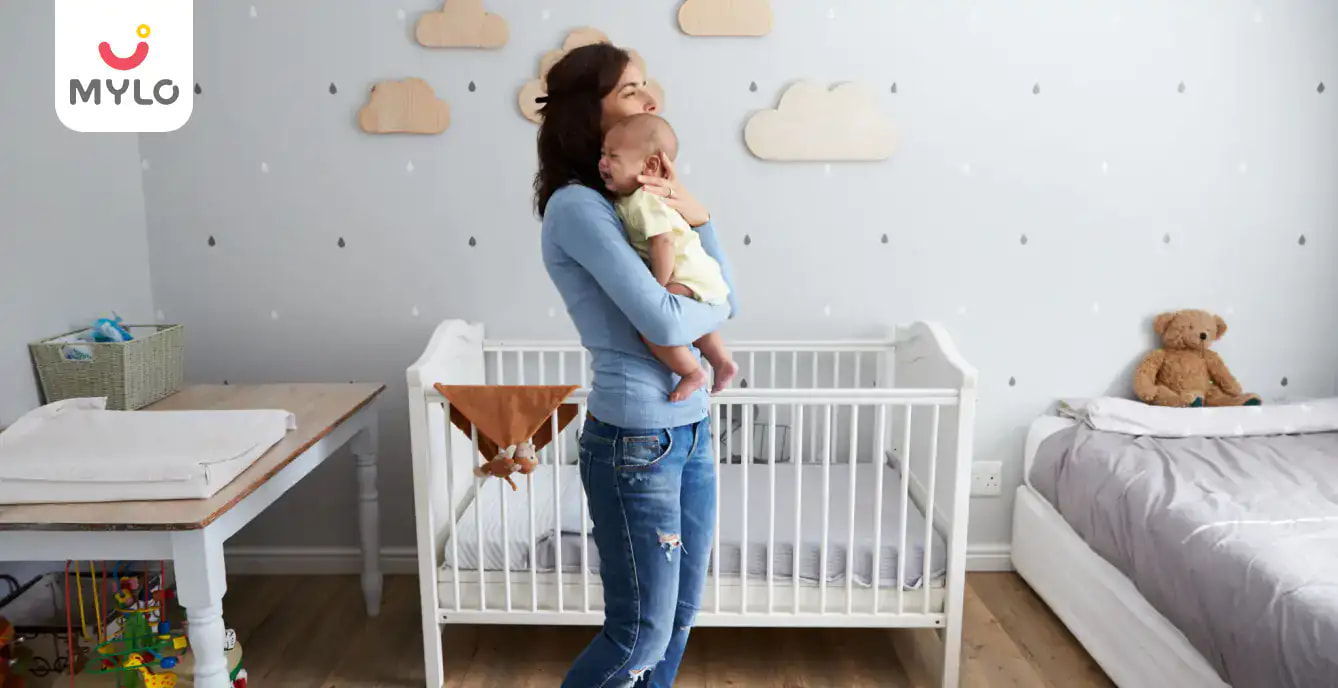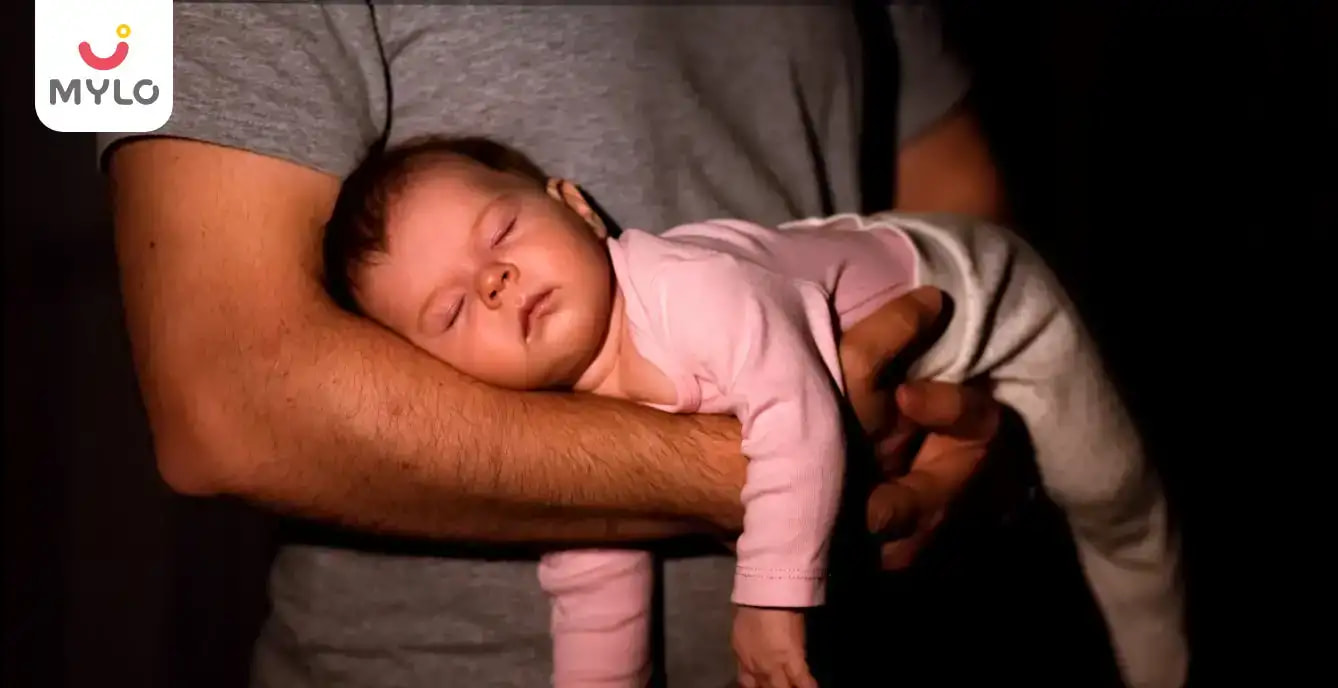Home

Emotions & Behaviour

Top 7 Secrets of your baby's behavior
In this Article
Emotions & Behaviour
Top 7 Secrets of your baby's behavior
Updated on 29 January 2022
Your babies' behavior can be confusing at times. You may find it difficult to understand the reason of your baby's frequent cries and smiles. Here are some tips to help you understand what your baby is trying to tell you:
Your baby can tell you what he needs before he learns to talk: Your baby can communicate with you from the moment he is born. When your baby wants to be near you, he will stare at your face or follow your voice. When your baby needs something to be different, he will turn or look away, or have a glazed, tired expression
Babies cry for many reasons, not only because they are hungry: Your baby cries for lots of reasons. Your baby might cry because she is tired, has a dirty diaper, or needs a break from what is going on around her. You can tell what your baby needs by looking for other signals besides crying, like wiggling, turning away, or a sleepy face. Learning your baby's cues can help you make your baby more comfortable before she starts crying.
The easiest way to soothe your crying baby is to do the same thing over and over: When your baby keeps crying even after everything has been checked, she needs your help to calm down. She needs you to use the same soothing movements over and over when she is upset.
When young babies first fall asleep, they can wake up easily: Have you ever rocked your baby to sleep and then quietly tried to lay him down only to have him wake up the moment his little body hits the bed? Unlike adults, young babies dream when they first fall asleep and when babies dream they wake up easily. After about 20-30 minutes babies will sleep more deeply and will be harder to wake up.
Waking up at night is healthy for your baby: It is normal for babies to wake up at night. Babies sleep lightly and dream more than adults and dreaming helps their brains grow and develop. Young babies need to wake up to eat to have their diapers changed, and to stay warm. As babies get older, they fall asleep more deeply and sleep longer at night.
More play time during the day usually means more sleep for you and your baby at night: Your baby needs exercise just like you! Physical activity will help your baby build strong muscles and learn to sit up and crawl. Newborns get exercise by being able to move their arms and legs freely in a safe place.
After the first 6 to 8 weeks of caring for your new born, things will get a lot easier: Taking care of a new born baby is not easy. Your baby will probably wake every 1-2 hours in the first 6 to 8 weeks, and it can be hard to understand what he needs. This can be very demanding on you as a parent! Fortunately, your baby will change fast! By 2 1 /2 to 3 months of age, your baby will sleep for longer periods of time and it will be much easier for you to understand what he needs.



Written by
Ravish Goyal
Official account of Mylo Editor
Read MoreGet baby's diet chart, and growth tips

Related Articles
RECENTLY PUBLISHED ARTICLES
our most recent articles

General Father
How to pack your wife's hospital bag

General Father
How to Travel with a Baby for a New Father

General Father
Looking for a perfect name for your baby? Here's how you can find it
Diet & Nutrition
14 Month Old Baby Food Chart/Feeding Schedule – Week 2

Daily Care Tips
How to treat head lice & nits in babies

Illnesses & Infections
Educating Your toddler about Covid
- Top Gadgets for Every New Parent
- New Mom Diet Plan – Month 11 Week 43
- 13 Month Old Baby Food Chart/Feeding Schedule – Week 3
- 13 Month Old Baby Food Chart/Feeding Schedule – Week 1
- Baby Diet Plan - Month 13
- What to do if my child has dengue
- Worried about how to ease your wife's backache during pregnancy? We will love to help you.
- Wondering how many times can a newborn drinks mother's milk? Let us know.
- New Mom Diet Plan – Month 12 Week 46
- Is your wife complaining about pain near the belly button? Here's what you should do.


AWARDS AND RECOGNITION

Mylo wins Forbes D2C Disruptor award

Mylo wins The Economic Times Promising Brands 2022
AS SEEN IN
















- Mylo Care: Effective and science-backed personal care and wellness solutions for a joyful you.
- Mylo Baby: Science-backed, gentle and effective personal care & hygiene range for your little one.
- Mylo Community: Trusted and empathetic community of 10mn+ parents and experts.
Product Categories
baby carrier | baby soap | baby wipes | stretch marks cream | baby cream | baby shampoo | baby massage oil | baby hair oil | stretch marks oil | baby body wash | baby powder | baby lotion | diaper rash cream | newborn diapers | teether | baby kajal | baby diapers | cloth diapers |








